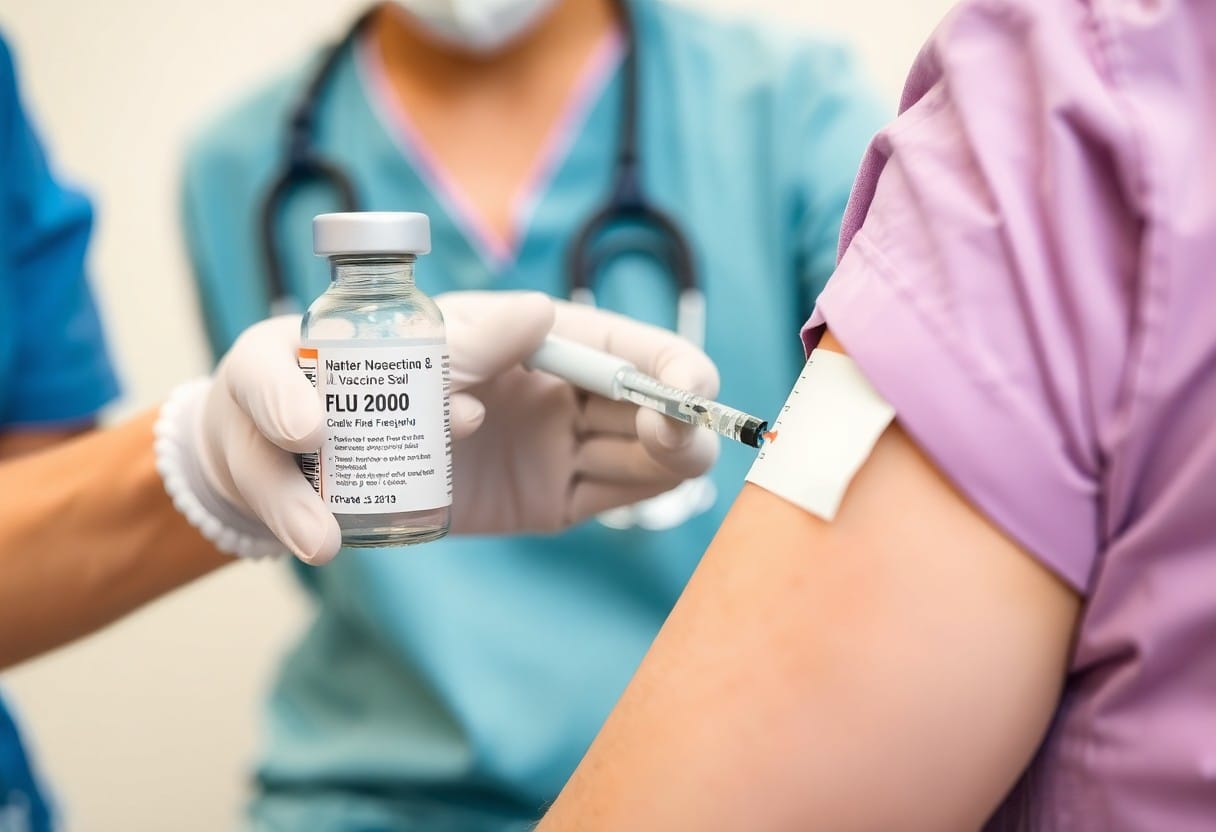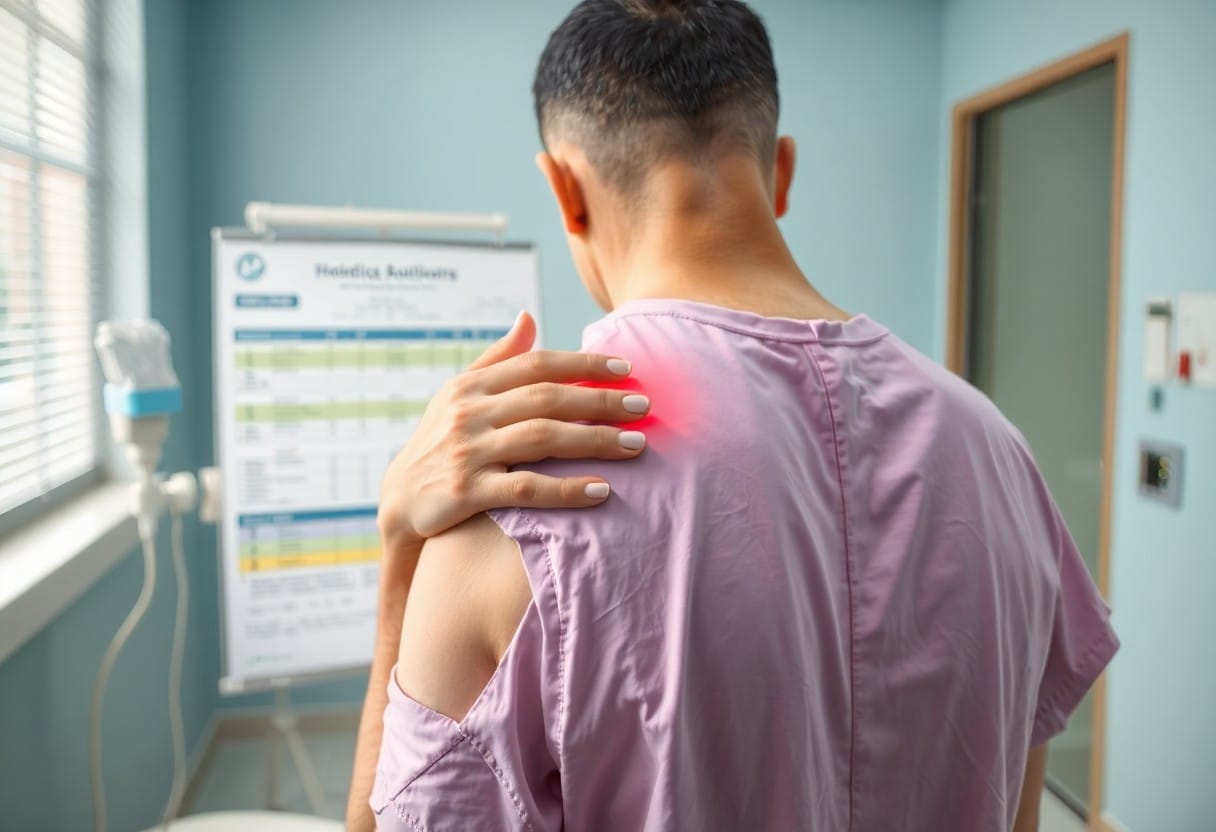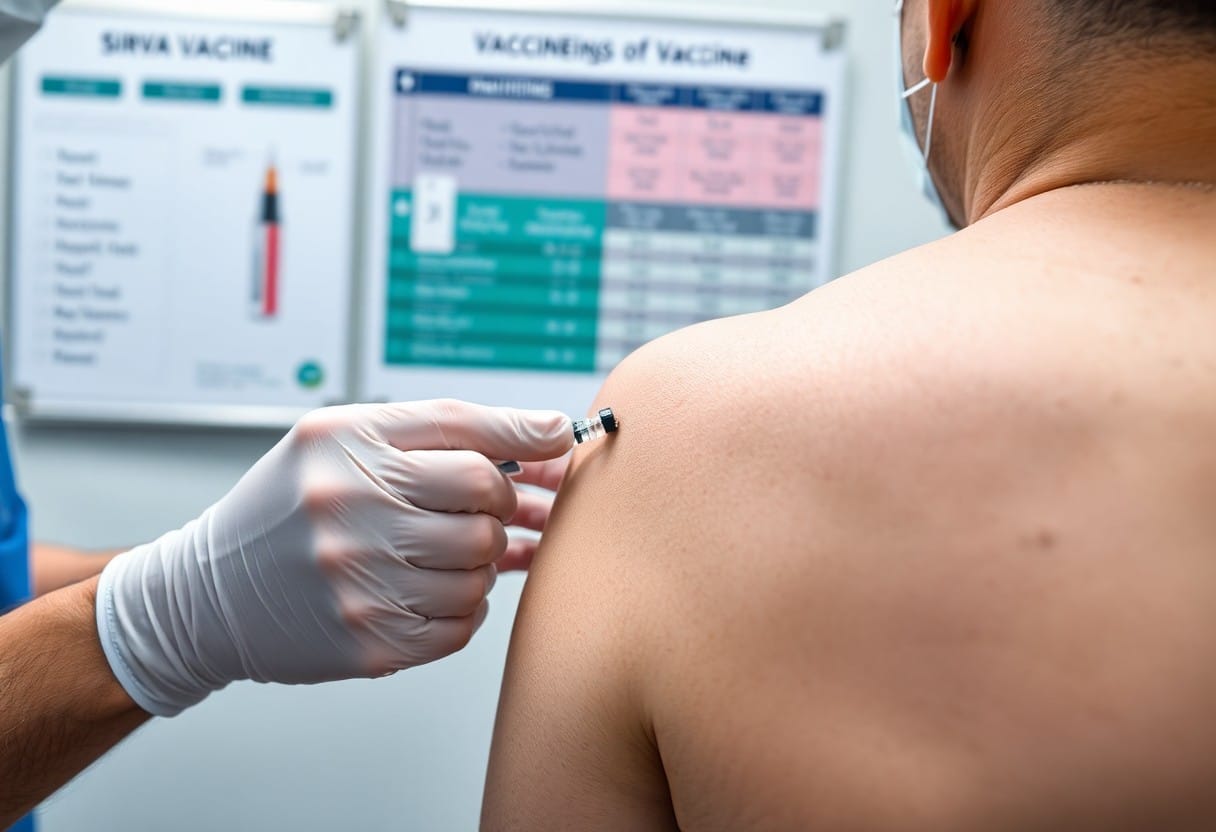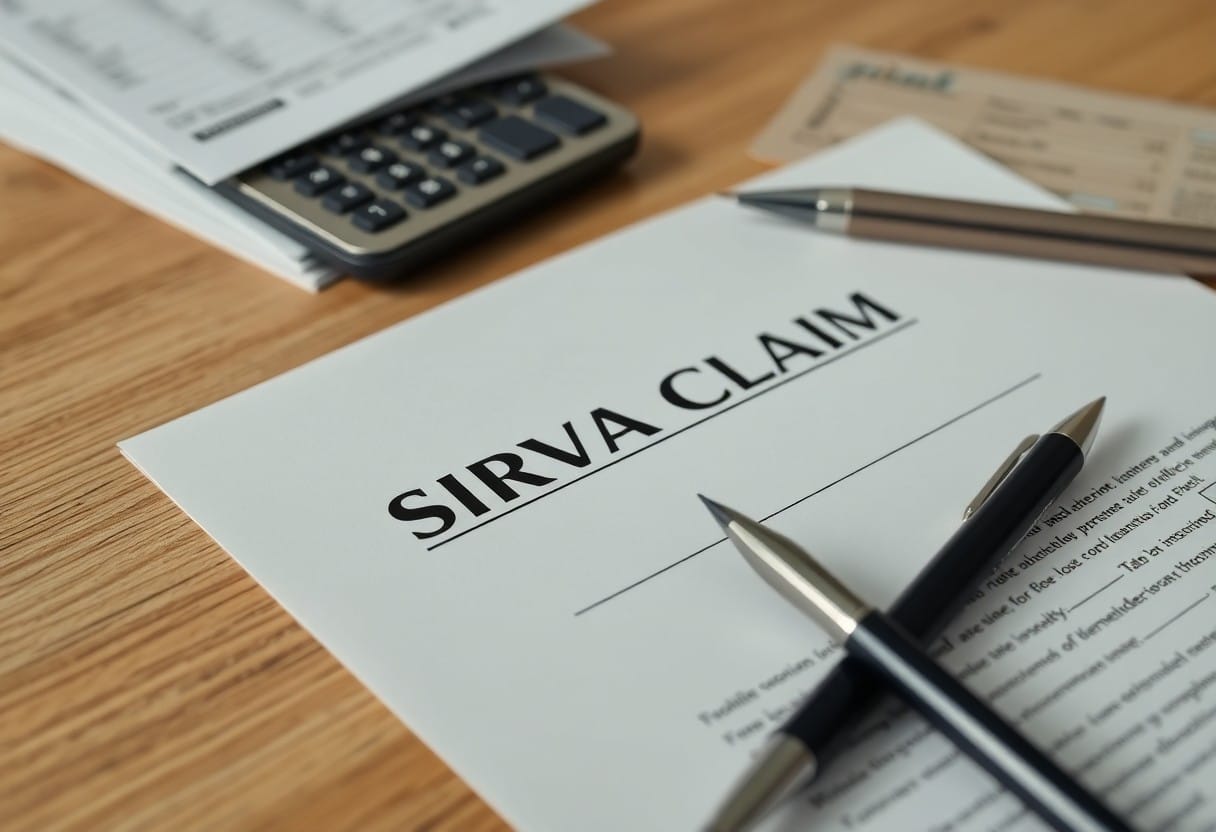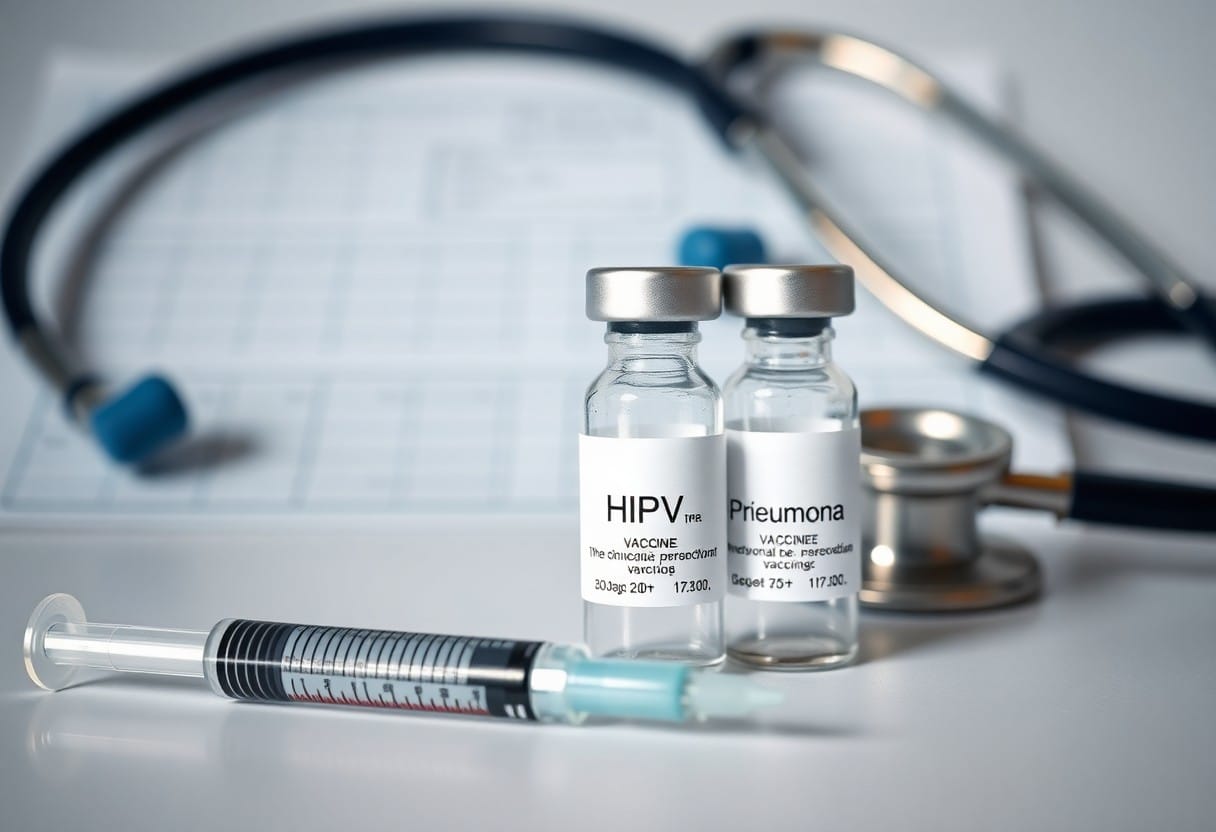This guide will help you understand the steps necessary to establish a link between your shoulder injury and the vaccine you received. You will learn how to gather evidence and document your symptoms effectively, making your case stronger when seeking compensation or medical support. By following the outlined strategies, you can articulate the impact of your injury and achieve a positive outcome for your situation.
Understanding Vaccine-Related Shoulder Injuries
To grasp the phenomenon of vaccine-related shoulder injuries, you must recognize that these injuries can occur when a vaccination is administered improperly. This often leads to inflammation and trauma in the shoulder area, which may affect your daily activities. Awareness of this issue can be vital as it relates to your health and any potential claims you might wish to pursue.
Common Types of Shoulder Injuries Linked to Vaccination
Now, it’s vital to identify the common types of shoulder injuries you may encounter post-vaccination:
- Shoulder Injury Related to Vaccine Administration (SIRVA)
- Rotator Cuff Tendinitis
- Shoulder Bursitis
- Frozen Shoulder Syndrome
- Muscle Strain
Perceiving these injuries early may aid in your recovery process.
Mechanisms of Injury
An understanding of the mechanisms that lead to shoulder injuries following a vaccine is vital for your awareness. These can occur due to improper injection technique or the administration of the vaccine at an incorrect location, which can inadvertently damage nerves and soft tissue in the shoulder region.
The primary mechanisms of vaccine-related shoulder injuries include improper needle placement, which may cause direct trauma to the shoulder structures, or an adverse reaction to the vaccine itself, leading to inflammation. Injection at the upper deltoid muscle can sometimes lead to complications like nerve damage or tendon inflammation. Understanding these mechanisms can empower you to accurately describe your symptoms and strengthen your case for proving your injury was vaccine-related.
Essential Evidence to Gather
There’s a variety of evidence you need to compile to effectively substantiate your claim that a vaccine caused your shoulder injury. This includes obtaining medical records, gathering witness statements, and gathering any relevant documentation that supports your case. Each element plays a significant role in establishing a clear connection between the vaccine and your injury, enhancing your overall argument.
Medical Records and Documentation
Any medical records that detail your condition before and after vaccination are paramount. These documents should include doctor’s notes, diagnosis reports, and treatment plans that outline your shoulder injury, showcasing how and when the issue emerged.
Witness Statements
Records from eyewitnesses can greatly enhance your case regarding your shoulder injury following vaccination. These statements should capture detailed accounts from individuals who observed your condition or heard you recount the incident soon after it happened. You might want to include family members, friends, or coworkers who can attest to how the injury affected your daily life.
Witness testimonies provide valuable context about the timeline of your injury and the changes in your physical condition immediately after vaccination. Their insights can illustrate the impact on your movements, day-to-day activities, and overall quality of life. If witnesses are available to support your claim, their accounts can serve as strong affirmation of your experience, reinforcing the connection between the vaccine and your shoulder injury.
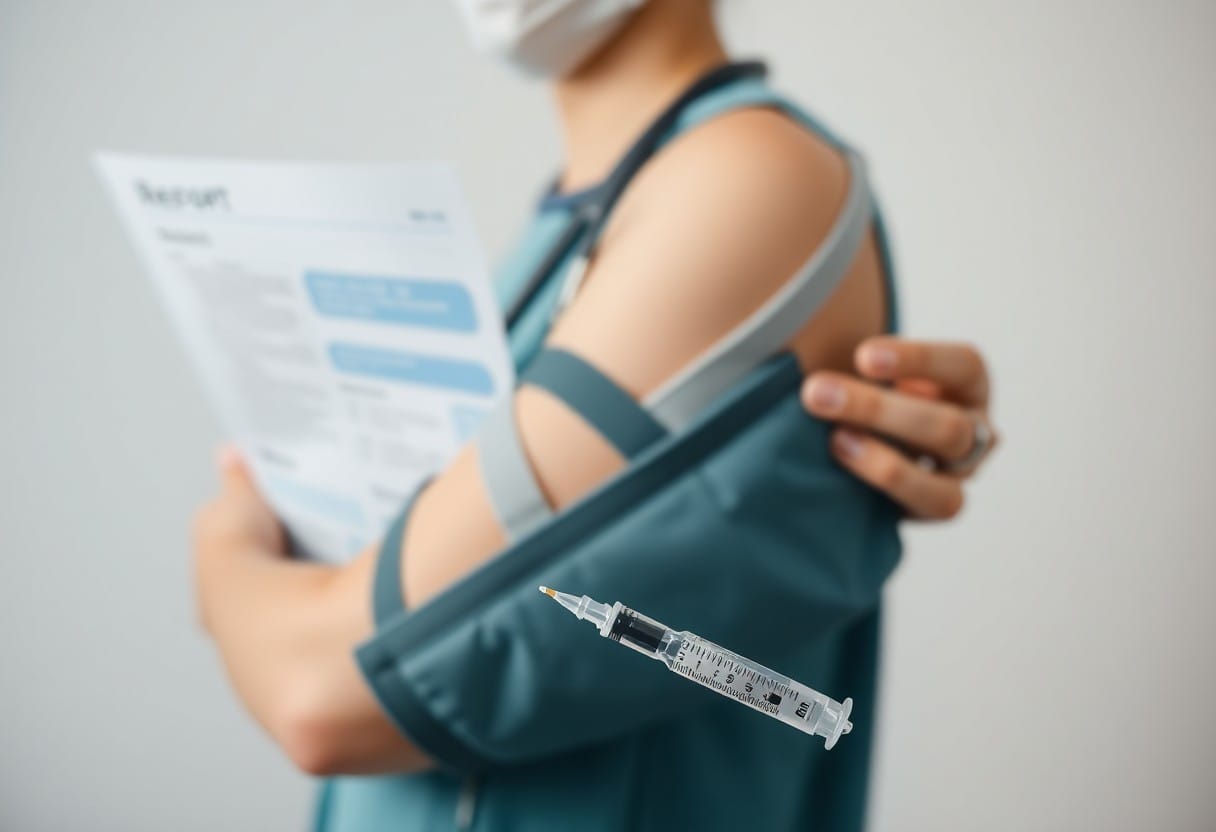
Tips for Documenting Your Injury
Assuming you want to successfully demonstrate that your shoulder injury resulted from a vaccine, accurate documentation is crucial. Prioritize the following actions:
- Keep all medical records
- Document your symptoms and pain levels
- Track the timeline of events
- Secure eyewitness accounts if possible
Assume that thorough documentation will significantly support your claim when seeking compensation or acknowledgment of your injury.
Keeping a Detailed Injury Log
Any information you can gather about your injury is significant. Create a detailed log that includes the date of the vaccine, the onset of symptoms, and any treatments you seek. Be sure to note how your injury affects your daily activities and any changes in your physical abilities. This documentation can provide vital context for your case.
Collecting Photographic Evidence
Injury photographs can greatly enhance your documentation efforts. These images should capture the condition of your shoulder, illustrating any visible symptoms, such as swelling or bruising. Take photos at different stages to show changes in your condition over time.
Evidence of your injury through photographic documentation is a powerful tool. Ensure that the images clearly depict any relevant symptoms or complications, as visual proof can greatly strengthen your case. Take pictures under consistent lighting conditions and from multiple angles to depict the severity of your injury. Additionally, include timestamps or dates with your images to provide a chronological overview of your recovery process. Collecting this photographic evidence will serve as a vital part of your comprehensive documentation strategy.
Factors to Consider in Your Claim
Unlike other injuries, establishing a vaccine-related shoulder injury involves specific factors that you must consider to strengthen your claim. It’s vital to assess your medical history, the timing of your injury, and any potential pre-existing conditions that may play a role. Key elements to focus on include:
- Medical documentation
- Vaccine type
- Timing of vaccination
- Previous shoulder issues
- Symptoms reporting
This comprehensive analysis will help substantiate your case effectively.
Timing of Symptoms After Vaccination
Clearly, the timing of your symptoms following vaccination is a significant factor in establishing a connection between the vaccine and your shoulder injury. You should document when your symptoms began and their progression. If the onset coincides closely with the vaccination date, it strengthens your claim by indicating a direct correlation.
Pre-existing Conditions
The presence of pre-existing conditions can complicate your claim regarding a vaccine-related shoulder injury. You need to provide evidence showing that the vaccine specifically exacerbated your situation or caused new issues. Comprehensive medical documentation and expert opinions can help clarify the relationship between the vaccine and your current condition.
Conditions that you had before the vaccination can significantly influence your claim’s validity. Chronic shoulder issues or past injuries might lead to challenges in proving that the vaccine was the sole cause of your current symptoms. However, if you can demonstrate a clear distinction between your pre-existing condition and your recent symptoms, your case may be stronger. Be sure to gather medical records and consider consultations with healthcare professionals who can provide their expert opinions.
Navigating the Claims Process
Now that you have established the link between your shoulder injury and the vaccine, it’s time to navigate the claims process. This involves understanding the specific steps required to document your injury, collect evidence, and file your claim effectively, ensuring you maximize your chances of receiving the compensation you deserve.
Identifying the Responsible Parties
One of the first steps in the claims process is identifying the responsible parties. This typically includes the vaccine manufacturer, the healthcare provider who administered the vaccine, and potentially any supervising health organization. Knowing who to address your claim to is pivotal for its success.
Submitting Your Claim
Little do many know that submitting your claim is a systematic process requiring careful attention to detail. Gather all necessary documentation and medical records detailing your shoulder injury, as well as evidence of how it directly resulted from the vaccination.
With this information in hand, you can prepare to submit your claim accurately. It’s important to follow the guidelines provided by the relevant health authority or insurance provider, ensuring that all forms are filled out completely and submitted on time. Including detailed medical records, statements from your healthcare provider, and any relevant billing information will strengthen your case. Be prepared to respond to additional requests for information promptly, as this can significantly impact the progression and outcome of your claim. Taking these steps can make a difference in achieving a favorable resolution.
Seeking Legal Assistance
Many individuals facing shoulder injuries after vaccination find that navigating the legal landscape can be overwhelming. Engaging a qualified attorney who specializes in vaccine-related injuries can help you understand your options, gather necessary evidence, and effectively advocate for your rights. An experienced lawyer will provide guidance through the complexities of the legal process, ensuring that your case is presented in the best possible light.
When to Consult an Attorney
The moment you suspect that your shoulder injury is linked to a vaccine, it’s advisable to consult an attorney. Early legal advice can help you assess the viability of your claim, gather important documents, and build a strong case. Don’t postpone seeking assistance, as timeliness can significantly impact your chances of a successful outcome.
Questions to Ask Potential Attorneys
Attorney interviews are key to finding the right match for your case. You’ll want to ask about their experience with vaccine injury claims, their approach to handling cases like yours, and their track record of success. Inquire about their fees and whether they charge on a contingency basis, which means you pay only if you win. Short-list attorneys who not only answer your questions but also give you confidence in their ability to represent your interests.
Seeking the right attorney for your vaccine-related shoulder injury claim involves careful consideration. Ask about their familiarity with the Vaccine Injury Compensation Program (VICP), as this expertise can greatly enhance your case. Inquire about their communication style—you want someone who is responsive and transparent. A good attorney should also provide referrals or testimonials from previous clients, allowing you to feel assured about your choice. Ultimately, the right attorney will empower you in your journey toward justice.
Conclusion
With these considerations, you can effectively build a case to prove that your shoulder injury was caused by a vaccine. Gathering comprehensive medical documentation, consulting healthcare professionals, and understanding the specifics of vaccine-related injuries will strengthen your position. Additionally, staying informed about relevant laws and regulations will help you navigate the claims process. By taking these steps, you can advocate for yourself and seek the necessary support for your situation.






